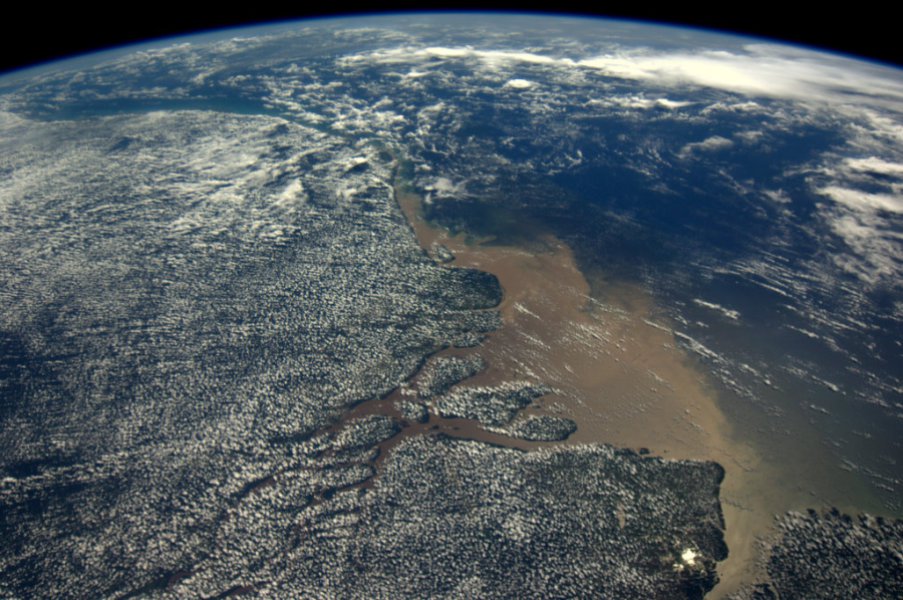11 Dec 2024

Tired Earth
By The Editorial Board

Researchers from the University of Amsterdam (UvA) and the University of Brasilia (Brazil) have determined the age of the formation of the Amazon River at 9.4 to 9 million years ago (Ma) with data that convincingly refutes substantial younger estimates. Their results are published as early view in the journal Global and Planetary Change.
The study comprised geochemical and palynological analyses of sediments from a hydrocarbon exploration borehole, situated offshore of Brazil, that reached more than 4.5 kilometers below sea level.
The results show a distinct change in sediment composition and plant residual matter during the late Miocene (9.4 to 9 Ma). This represents a switch in river source area from the tropical lowlands to the high Andes, which is diagnostic of the onset of the transcontinental Amazon River. The new data contradict younger estimates (c. 2.6 Ma) that have been proposed in recent literature and postdates estimates from an earlier study of this borehole by about 1 to 1.5 million years.
Source:sciencedaily.com
Sediments record evolutionary history
'We were able to narrow down the age of onset of the Amazon River because we sampled the transition interval in a classical section of the Amazon submarine fan, where the sediments transported by this river are deposited and as a result accurately record its evolutionary history. We applied high resolution analytical techniques not previously performed in the region', says professor Farid Chemale, senior author from the University of Brasilia (now at Universidade do Vale do Rio dos Sinos, S?o Leopoldo).
The study also gives novel insights into overall changes in plant composition in the Amazon drainage basin. Particularly, the rise in grass remains suggests that mountain uplift and Quaternary climatic changes strongly affected the landscape and probably opened up new habitats for grass colonization.
Dramatic changes
'The changes detected in the sediment record lead to the tantalizing question of whether the Amazon region might have changed dramatically during Plio-Pleistocene global cooling', says Dr Carina Hoorn, lead author and researcher at the UvA's Institute for Biodiversity and Ecosystem Dynamics. 'Our new data confirm an old age for the Amazon River and also point at an expansion of grasslands during the Pleistocene that was not known before. Further research on land and at sea may give further answers but will require investment in both continental and marine drilling.'
Largest drainage basin of all rivers
The Amazon River contributes a fifth of the total fresh water supply to the global oceans and has the largest drainage basin of all rivers around the world. The onset of the river is a defining moment in the reorganization of the paleogeography of South America, forming both a bridge and a divider for biota in the Amazon landscape.
The history of the Amazon River and its drainage basin are hard to unravel, as the continental record is scarce and fragmented. The marine record is more complete, yet is equally difficult to access. Sediment aprons in the proximity of major rivers often hold continuous records of terrestrial material accumulated by the river over time. These records provide a unique insight into the historic climate, geography and biome evolution of the land.
Clim-Amazon project
The research was carried out in the context of the Clim-Amazon project, a joint Brazilian-European scientific initiative for climate and geodynamic research on the Amazon River Basin sediment and is supported by the EU (European Union) through the FP7 (Seventh Framework Programme for Research and Technological Development).
Comment